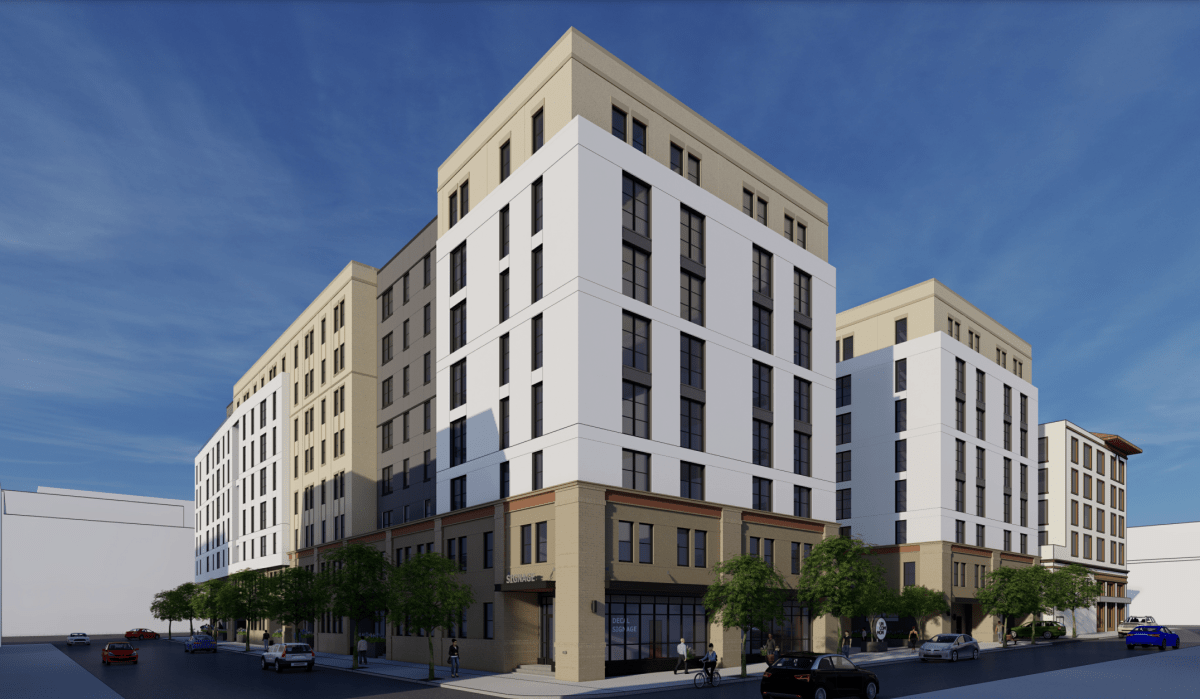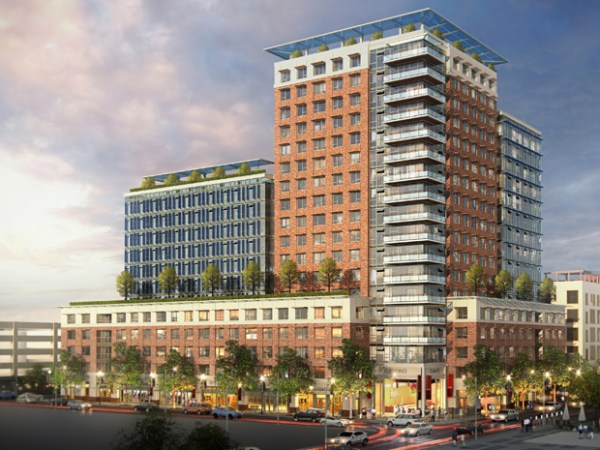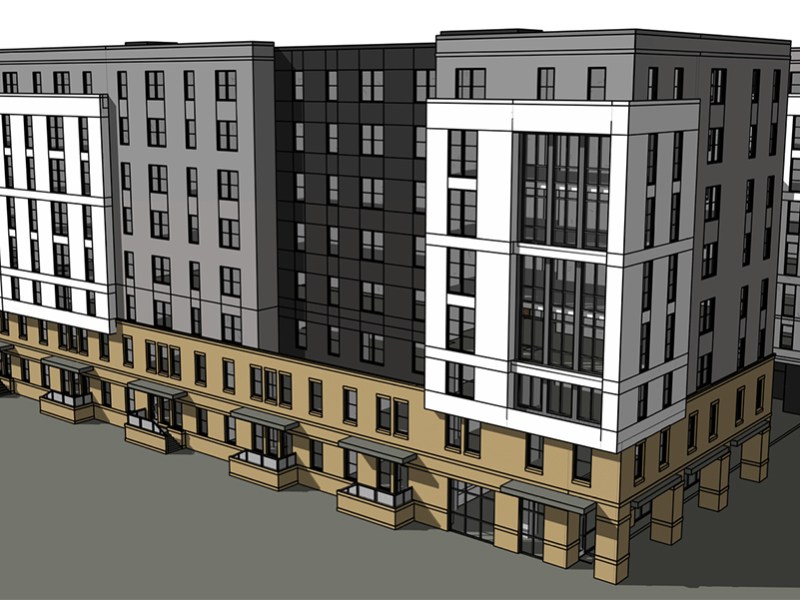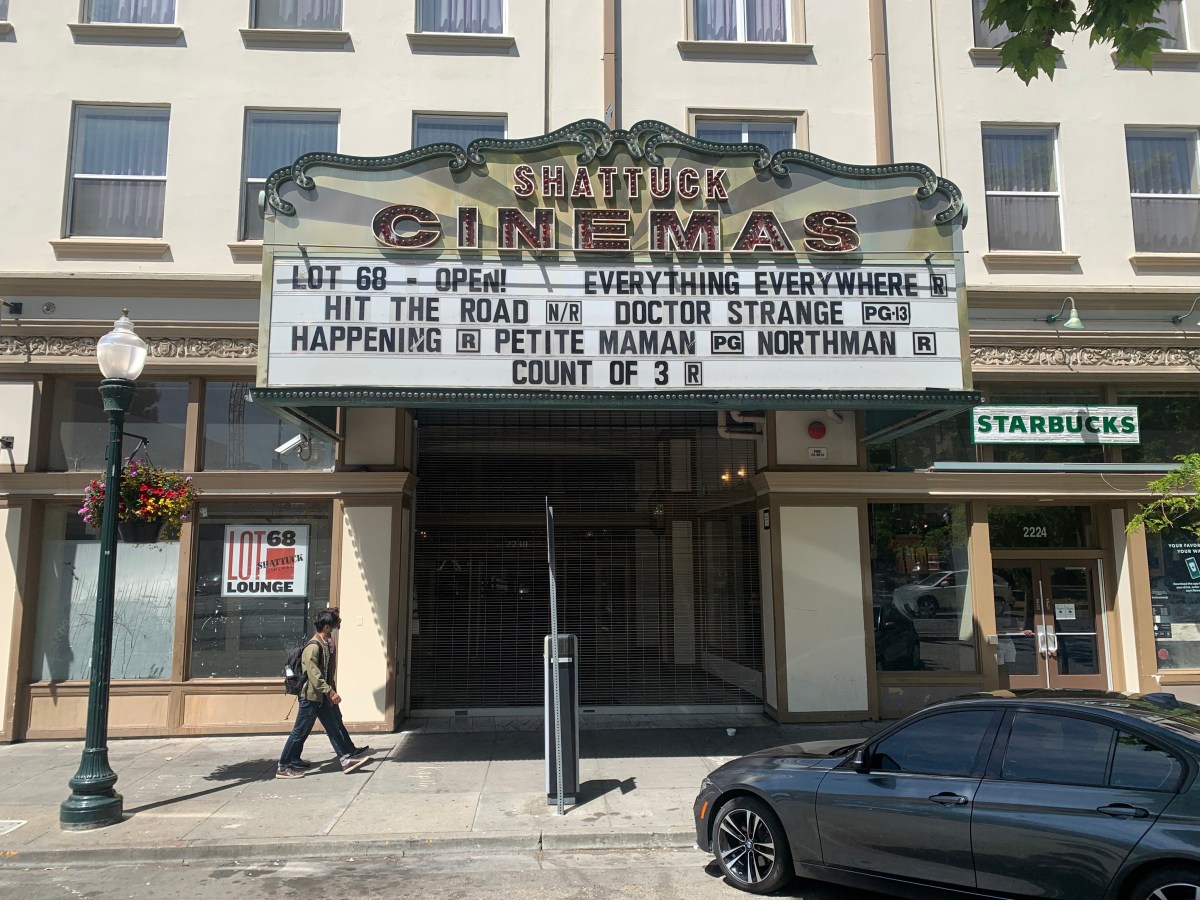
When a developer put forward a plan for an 18-story apartment complex on a quiet downtown Berkeley block in 2012, the proposal kicked off a long and contentious debate over high rises and housing in the city’s core. The Berkeley Plaza project was discussed at 37 city meetings over three years and challenged in court; it was ultimately approved, but the developer scrapped the plans in 2020, saying they had become too expensive.
Just over a decade later, after only five city meetings, another developer has gotten the green light to build a smaller project at the same site.
Plans from Chicago-based developer CA Ventures for an eight-story, 187-unit building at 2065 Kittredge St. were approved by the Berkeley City Council on Tuesday. The building, also called Berkeley Plaza, will occupy the length of Harold Way, a block-long street just west of Shattuck Avenue that runs between Kittredge Street and Allston Way.
Nine apartments will be affordable for renters considered very low income; the developer will also have to pay a fee to the city’s Housing Trust Fund.
The project calls for demolishing buildings on the site that once housed the theaters of Shattuck Cinemas, which closed last year, and the children’s museum Habitot.
Bill Schrader, a representative for the development team, told the City Council that work could start as soon as next week.
The simpler approval process for the more recent Berkeley Plaza project was the result of a 2018 state law, SB 330, that aimed to speed up housing construction by barring cities from subjecting most developments to more than five hearings. The law was prompted in part by protracted development sagas, like the one over the original 302-unit Berkeley Way proposal, which critics said added to the cost of building new housing and delayed many projects until developers gave up.
The latest proposal for the site was put forward in the summer of 2021. It was delayed in part by a challenge from unions in the building trades that wanted CA Ventures to agree to certain labor standards, such as providing healthcare coverage for construction workers and apprenticeship programs.
Mayor Jesse Arreguín proposed an ordinance last year that would make those standards mandatory on large construction projects, but the City Council has not approved the legislation. SB 330 also prevents cities from imposing new regulations on projects after they have been submitted, meaning Berkeley could not legally require CA Ventures to provide those benefits.
That provision of the state law, and its five-meeting limit, combined to create an odd sight at Tuesday’s meeting, as Arreguín negotiated from the dais with members of the development team over a looser set of labor standards.
The team ultimately agreed to conditions of approval that included making a good faith effort toward hiring local workers, as well as studying healthcare contributions and apprenticeship programs. But the conditions stop short of requiring those benefits to be implemented on the project.



